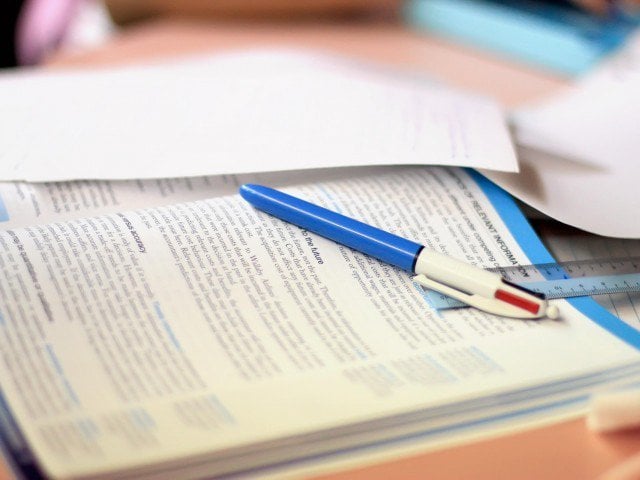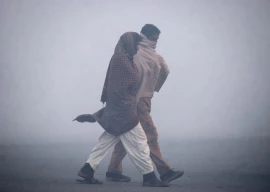
This was stated during a seminar, 'Connecting the Dots - Linking College and Tertiary Education for Students' Success' at the Shaheed Zulfikar Ali Bhutto Institute of Science and Technology (Szabist) on Friday.
"Nothing can be achieved without political will," said chief guest and academician Rahat Kazmi, adding that in Pakistan we don't lack resources but there is little will to achieving our goals. He criticised the lack of justice or truth in the history books, where the separation of Pakistan in 1971 is explained in three lines. He maintained that in such a situation we cannot inculcate analytical reasoning among our students.
Positive steps: ‘Steps taken to improve education’
Kazmi added that liberal arts must be encouraged as they will ultimately lead to the development of students capable of dealing with the country's issues, rather than students with artificial intelligence.
Educator Dr Fatima Dar quoted anthropologist Margaret Mead as saying children must be taught how to think, not what to think.
According to her, four basic elements of education must be considered by every educationist, with the first being a soft skill set of development in order to bring about effective, meaningful and productive education.
Secondly, we must also inculcate a 21st century skill set in our students, which means the eight Cs - creativity, curiosity, criticism, communication, collaboration, compassion, composure and citizenship -need to be introduced in our education system, she said.
Public complaints: Education minister to hold open courts
According to Dr Dar, the ability to think in a combined manner as an educator is the third basic element of education, as 38% students in Pakistan study in the private sector, whereas 62% are enroled at public sector schools. "Our education standards are projected by what happens in the public sector," she maintained.
"We need to connect the dots and bridge the gap between the public and private sectors," she urged, adding that we need to envision something for them as well.
Fourthly, we need to rethink the role we play as educators, since we need to be awakeners, not just teachers, she told participants. "Education need not be stratified," she said, adding that education is always interdisciplinary and interconnected.
Transfer and posting: Govt appoints new education secretary
"Those coming from the Cambridge system have more competitive skills, better communication skills, better knowledge and a higher level of confidence than those from traditional matric or intermediate systems," said Szabist vice-president Dr Altaf Mukati.
However, he said that this has no relation to the students' capabilities and is instead influenced other factors, which create a difference between the students.
The traditional system is continuously deteriorating and now the coaching systems have taken the place of colleges, he lamented, adding that poor management of the intermediate boards also factor in to the education standard.

1726117332-0/Megan-Thee-Stallion-(1)1726117332-0-165x106.webp)





















COMMENTS
Comments are moderated and generally will be posted if they are on-topic and not abusive.
For more information, please see our Comments FAQ